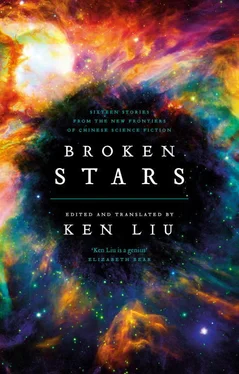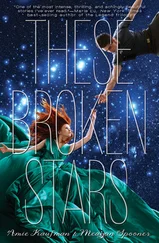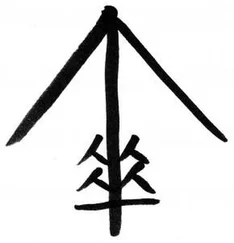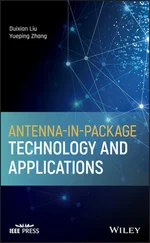I should also mention that in addition to mainland writers, a number of authors in Taiwan and Hong Kong have also made important contributions to the field, particularly those authors of experimental fiction, like Lo Yi-chin, Dung Kai-cheung, and Ng Kim-chew, who all appropriate elements of science fiction to achieve a more sophisticated level of literary experimentation with motifs of heterotopia, the posthuman, and metaphors of identity. Sinophone science fiction could be the next goldmine to be discovered, explored, and brought to attention for a world audience.
*
Through editing a few special journal issues and organizing conferences, I got to know a number of scholars working on interesting topics. For example, Adrian Thieret writes about Liu Cixin’s version of cosmopolitanism; Cara Healey studies genre transgression and transnationalism in science fiction; Hua Li explores a variety of topics in the political, environmental, and metaphorical in Chinese SF; Jiang Jing studies both late Qing science fiction as the origin of modern Chinese literature and the socialist science fiction from the 1950s to 1980s; Nathaniel Isaacson, after his book on late Qing SF was published, is working on variations of science fiction in other genres during the Republic Era and early PRC; I myself prepare to write about heterotopia in the variations of science fiction by Taiwanese and Hong Kong authors. Scholars like Li Guangyi, Ren Dongmei, Liang Qingsan, and Zhang Feng (Sanfeng) have unearthed important materials for further research in the genre. Some more comprehensive bibliography and collection of materials will hopefully be made accessible to researchers soon.
The field keeps growing, and the new continent is full of wonders. I hold a firm belief that Chinese science fiction is going to be, or has already become, the most rapidly growing subfield of modern Chinese literary studies. It is changing the field. It reshapes our understanding of Chinese literary modernity as well as its potentials for future development.
SCIENCE FICTION: EMBARRASSING NO MORE
by Fei Dao
Some years ago, I attended a speech by an arthouse director I admired. He was known for unflinching realism in his work, and the small Chinese towns buffeted by the tsunami of modernization portrayed in his films always reminded me of my hometown.
In his speech, he opined that contemporary Chinese society was obsessed by the present, and was without a clear vision of either the past or the future. Therefore, for his next film, he wanted to return to the past, to reexamine and reevaluate Chinese history. So, during the audience Q&A, I asked him whether he would eventually make a film about the future, or, in other words, a sci-fi film.
The audience roared with laughter.
For most in attendance, the appearance of the word “sci-fi” in the cultured and sophisticated setting of this speech was utterly incongruous. My question shocked them in the same way the audience at an opera would be stunned if someone had asked whether Pavarotti was considering taking up beatboxing.
To be honest, I was terribly embarrassed. No one wanted to be that guy who asked odd questions that made everyone feel awkward. Of China’s 1.4 billion people, the number of science fiction fans was a vanishingly small minority. For most Chinese, “sci-fi” conjured up images of young, gawky teenagers obsessed with anime, wuxia novels, outrageous clothing, and ridiculous hairstyles. Like those other juvenile pursuits, sci-fi was to be abandoned when one reached maturity. Science fiction was neither practical nor useful and had nothing to do with real life. In most people’s minds, it was no more real than distant countries whose capitals they couldn’t even recall. Once in a while, they might hear the genre mentioned, but they knew nothing about it and had no desire to find out more. Indeed, if “sci-fi” happened to pop up in conversation, their faces would twist into expressions of bewilderment, and they would ask, “Are you talking about Harry Potter? That’s sci-fi, isn’t it?”
In any event, I was younger back then, and my courage had not yet been dulled by experience. Thus, when I attended an international academic conference meant to discuss Important And Intellectual Subjects, the inexplicable urge to bring up science fiction once again gripped me. Taking advantage of a coffee break, I walked up to a renowned German sinologist and asked him if he had ever read any Chinese science fiction.
This aged and respected scholar had once declared that after the founding of the People’s Republic of China, Chinese authors had produced no work that would be considered great by the rest of the world. I did not agree with him.
At that time, Mo Yan hadn’t yet won the Nobel, but I wasn’t thinking of him anyway. The second book in Liu Cixin’s “Three-Body” series, The Dark Forest , had just been published, and every Chinese sci-fi fan was thrumming with excitement. I was certain that at least in the realm of science fiction, a contemporary Chinese author had indeed written something the equal of any of the great Western classics.
But the renowned sinologist interrupted my disquisition politely, “I don’t even read German sci-fi!”
There was nothing I could say in response to that. Heck, even Chinese readers for Chinese sci-fi were few and far between.
I wasn’t some rabid superfan who believed that my beloved genre was the best thing ever to happen to literature and anyone who couldn’t appreciate sci-fi was a philistine. In fact, I didn’t even like to argue with people. My questions were a kind of performance art: out of a desire for security or mental peace, everyone built around themselves a mental firewall that filtered the torrents of information in which modern life inundated all of us. “Sci-fi” was one of the keywords tagged by most people’s firewalls as useless information, and I simply wanted to toss it over the firewall so that they had to evaluate it anew instead of automatically ignoring it. I suppose many would think what I did was foolish and pointless, but at least I didn’t harm anyone with my questions.
Here, I have to explain to my readers in the West that for a long time, science fiction in China was like subatomic particles or radiation, undetectable to most. A student majoring in literature would find virtually no information concerning sci-fi in textbooks or academic histories of Chinese literature. (To be sure, in histories of Western literature one would occasionally find the names of writers like Margaret Atwood, Kurt Vonnegut, and Thomas Pynchon—but the text would go on to emphasize that these writers only used the techniques of science fiction as a form of “literary experimentation,” as though it would be a terrible thing to sully the august tomes of literary history with the presence of any pure genre writer.)
Within the elegant, highly intellectual, awe-inspiring atmosphere of “serious” academic conferences, it was almost impossible to find a science fiction author or a scholar of sci-fi. It was rare to see sci-fi covered in the mainstream media. If some newspaper or magazine happened to publish a 200-word snippet about sci-fi or if a popular magazine founded by a bestselling YA author published a story by a sci-fi writer, fans celebrated the occasion and rushed to share the news with each other. Even the publisher of Doris Lessing’s Mara and Dann: An Adventure and the writer invited to provide an introduction for the book avoided mentioning the book’s obvious genre classification, fearful of harming sales.
In the face of so much apathy and ignorance from society at large, sci-fi fans in China rallied to Science Fiction World , a magazine dedicated to serving them. Through college fan clubs, Internet forums, and other grassroots activities, fans found each other and banded together, forming a distinctive subculture. Hidden in their refuge, protected by their isolation, they entertained themselves, feeling sorry for those who didn’t understand or experience the sense of wonder in gazing up at the stars.
Читать дальше












